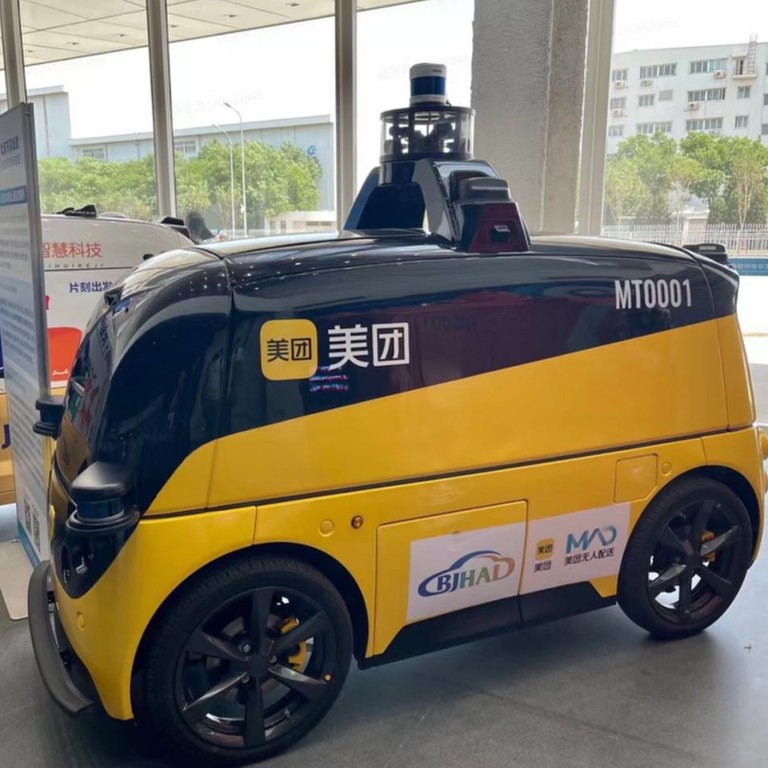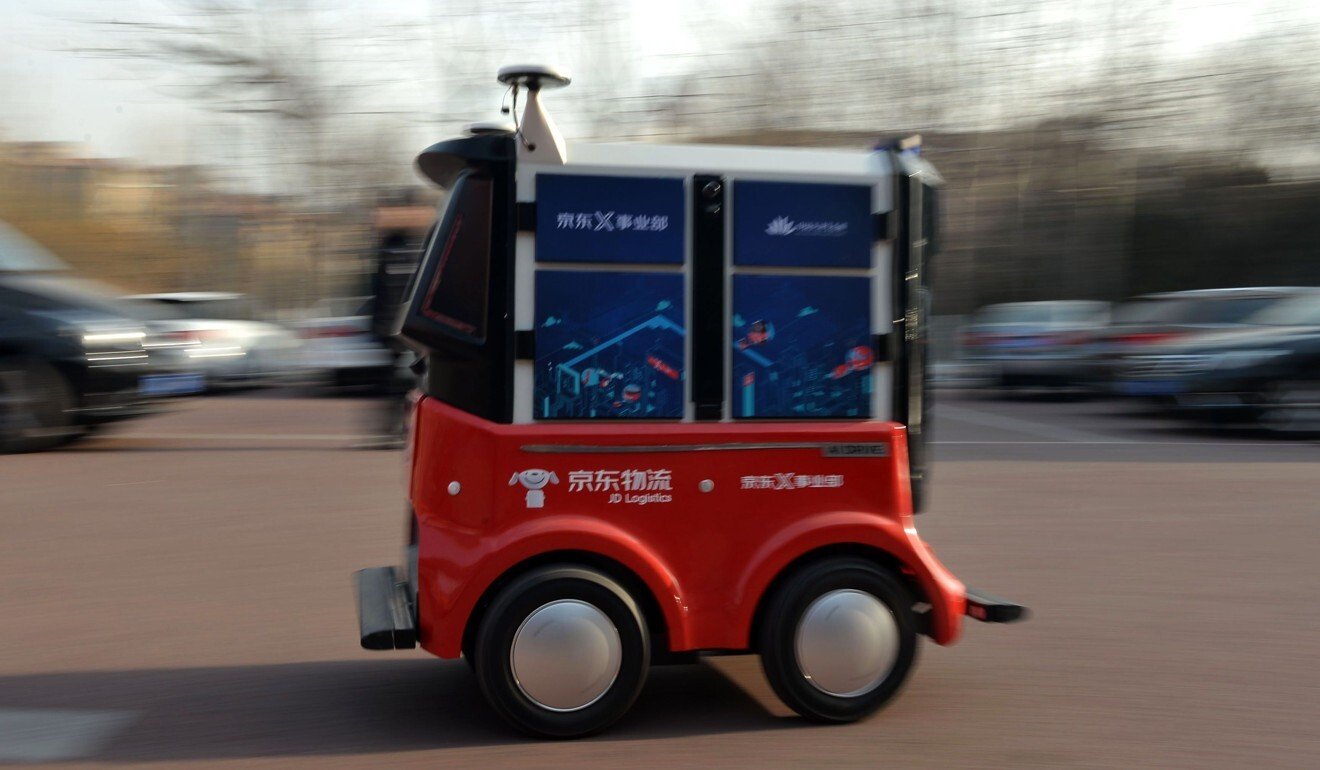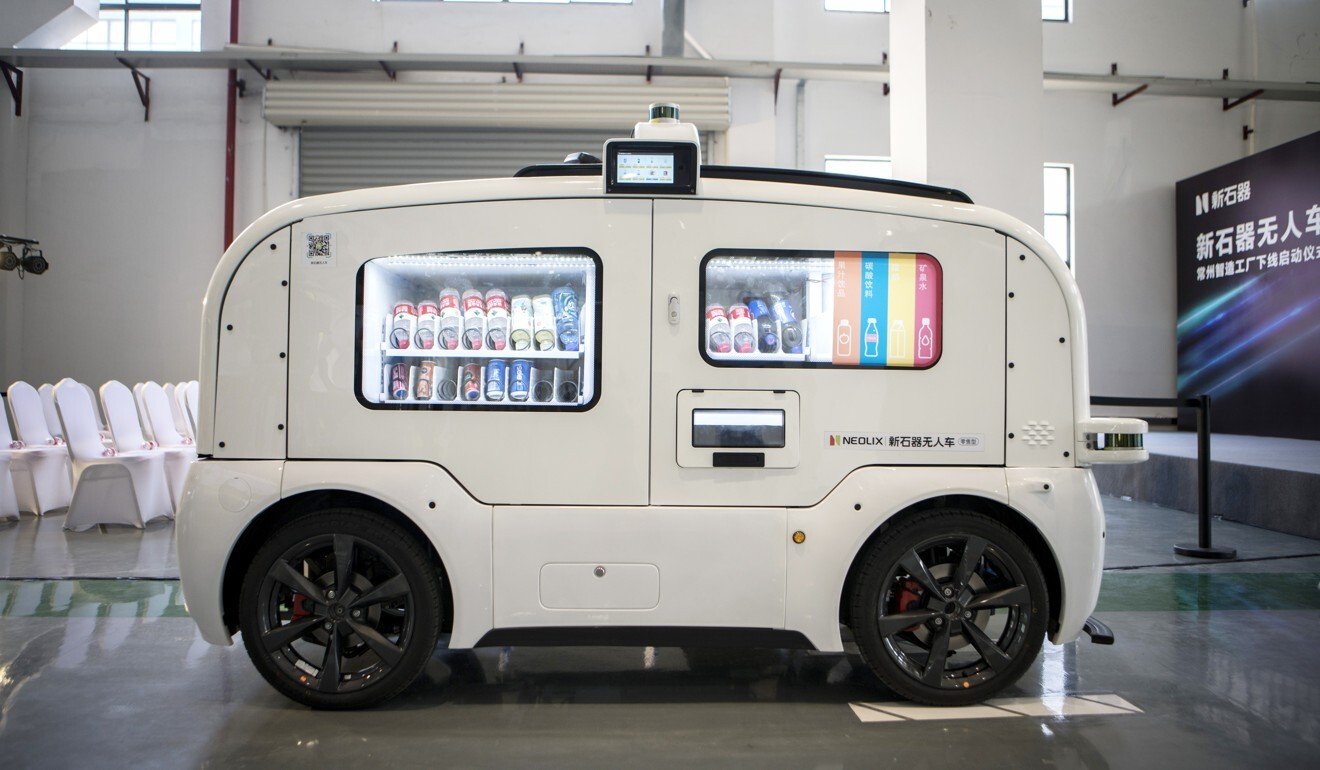
Meituan, JD.com, Li Auto-backed Neolix win licences to test unmanned delivery in Beijing
- Three companies have been granted licences to test self-driving delivery vehicles at an economic and technological development zone
- China is under pressure to develop autonomous technology as its population ages and labour pool shrinks
China’s capital city is paving the way for more robots on the road as the country’s pool of cheap labour shrinks and working conditions in delivery companies come under scrutiny.
E-commerce platform JD.com, on-demand service platform Meituan, and Li Auto-backed autonomous driving start-up Neolix received licences on Tuesday to test their autonomous delivery vehicles in the Beijing Economic-Technological Development Area, a government-developed zone in the southern part of the city known as E-Town.
The rules categorised the robo-vans as non-motor vehicles, suggesting that they will need to stay in the same lane as the city’s bicycles and electric scooters. In addition, the delivery drones will need to have safety drivers, both “on-site” and remotely, according to a statement posted on the pilot zone’s official WeChat account.
“Unmanned delivery vans are of great significance in promoting the transformation of the logistics industry from labour-intensive to technology-intensive,” said the statement.

Beijing said last year it was building a cloud-based pilot zone for self-driving vehicles in E-Town covering 60 square kilometres, featuring integrated smart roads, intelligent vehicles, real-time cloud data transmission, a reliable network and precise maps, according to state-run news agency Xinhua.
In response to a changing workforce, rising labour costs, as well as new health risks introduced by the Covid-19 pandemic, Chinese e-commerce and logistics players have become ever more keen to apply autonomous technology to real-life scenarios.
So far, Beijing-based Meituan and JD.com have been testing autonomous delivery systems mostly in designated locations. Last October, Meituan launched an app-based smart store that offers unmanned deliveries to Beijing’s Shougang Park, which is expected to become a 2022 Winter Olympics venue. JD.com deployed autonomous delivery cars on public roads in parts of Changshu city in the coastal province of Jiangsu province last year after testing the technology in Wuhan, the epicentre of the coronavirus outbreak.
Also last year, e-commerce giant and South China Morning Post owner Alibaba Group Holding unveiled an autonomous logistics robot in a bid to bring down the cost of last-mile deliveries. It tested the robot delivery service at the Zhejiang University campus in Hangzhou, the company’s home base.
Is China’s population a cause for concern?
The experimentation comes as China’s population ages at an unprecedented rate and concerns of a shrinking labour force escalate.
The number of Chinese people aged 60 or older reached 264 million in 2020, according to the latest census data, accounting for 18.7 per cent of the population and up 5.44 percentage points than during the previous census in 2010. Meanwhile, those aged between 15 and 59 made up just 63.35 per cent of the population last year, down 6.79 percentage points from a decade earlier.

However, authorities have continued to clamp down on grass-roots efforts to fight for the labour rights of delivery workers.
In May, Chen Guojian, an activist who established a virtual network known as the Delivery Rider Alliance, was taken into custody by authorities on accusations of credit card fraud, provoking trouble, and obstructing enforcement of pandemic control measures – charges that could lead to up to five years in prison.

